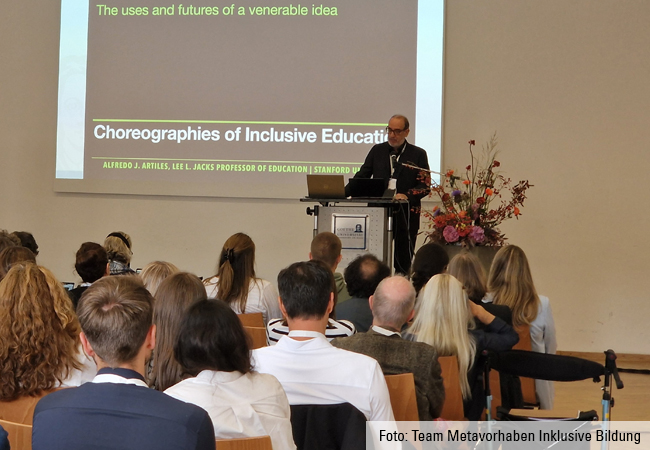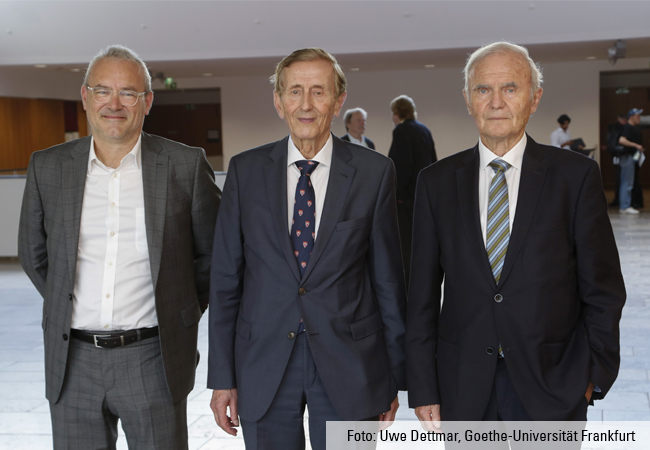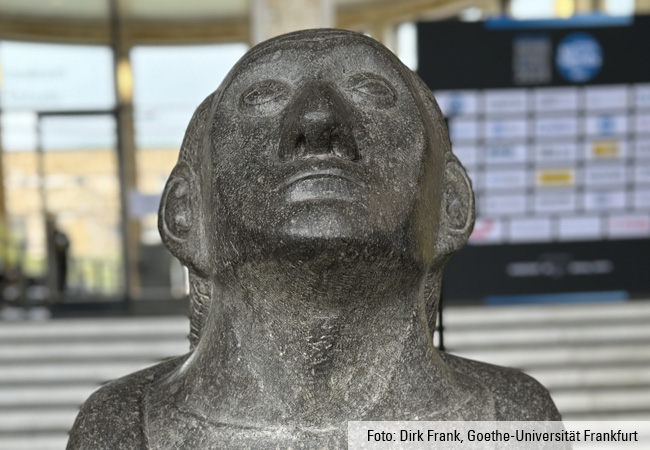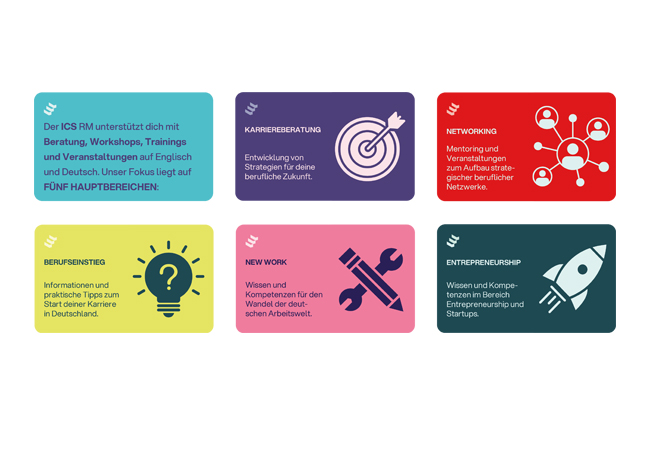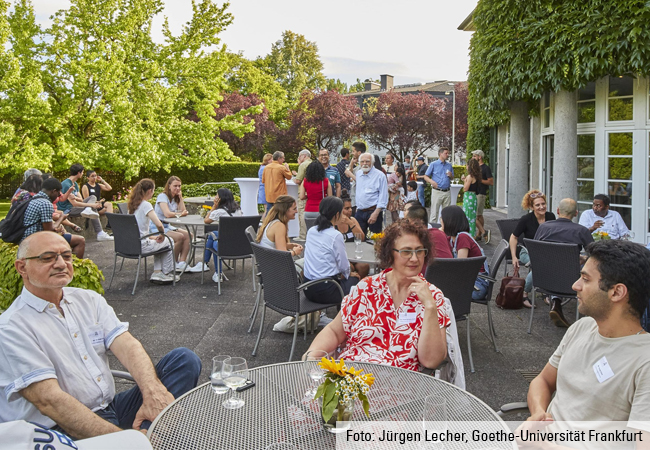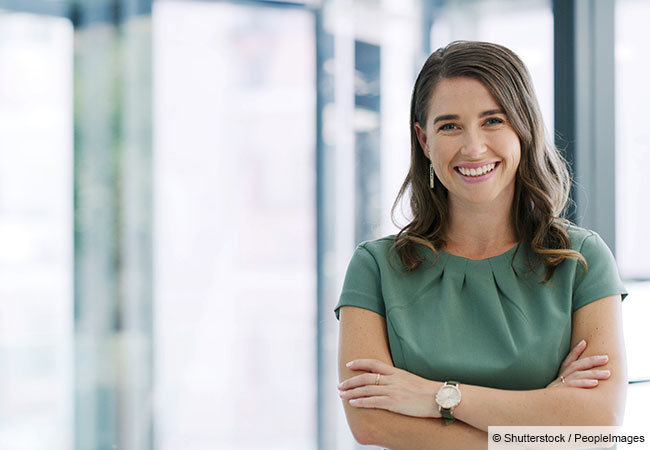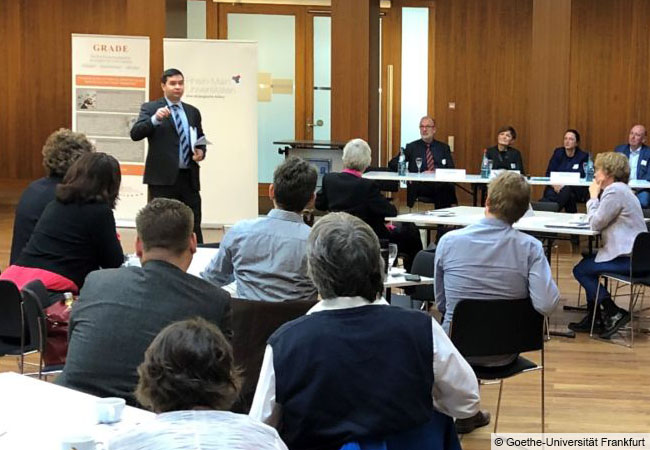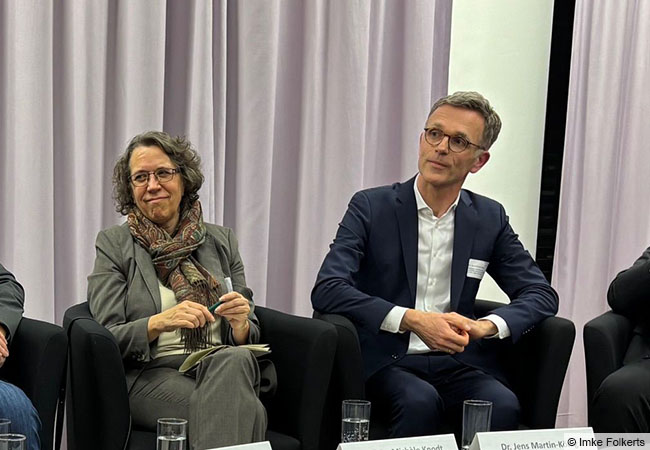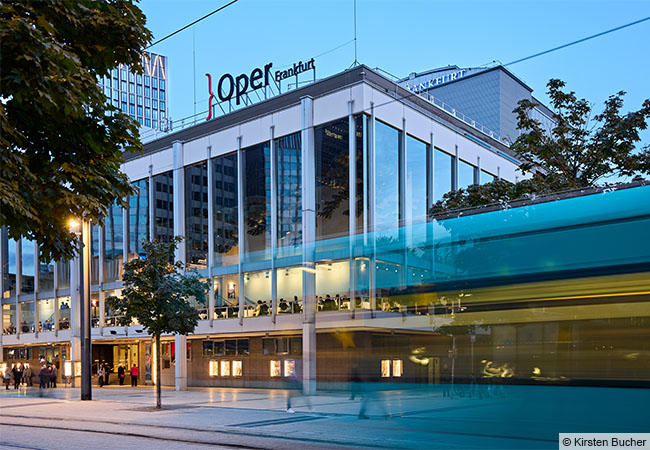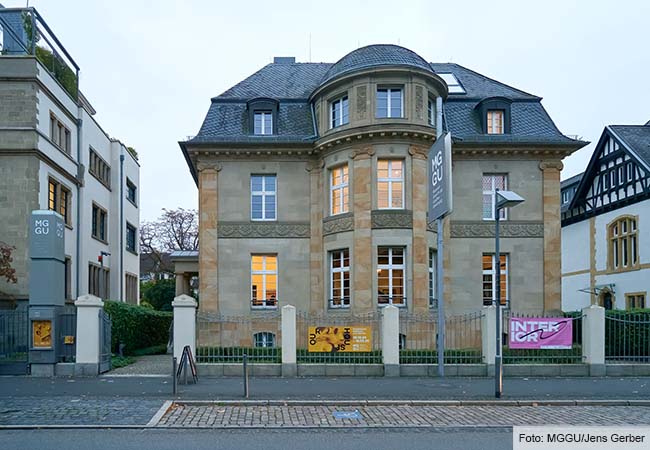Table tennis player Juliane Wolf returns from Paris with silver and bronze medals, wheelchair basketball player Nico Dreimüller with bronze.
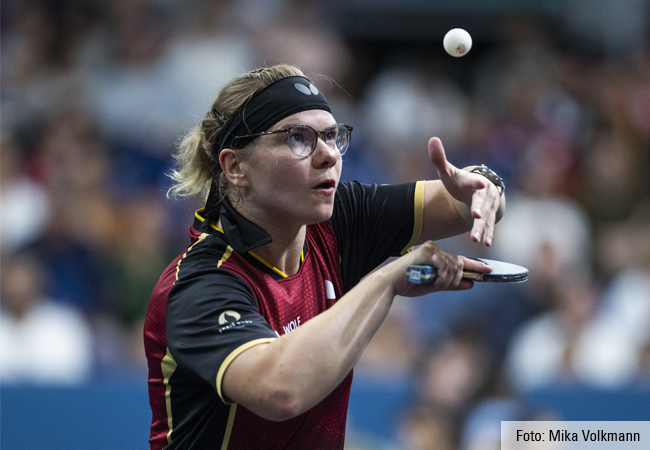
On the podium twice
She still cannot quite believe it even though a few weeks have now past: At her third Paralympic Games, Juliane Wolf, educational scientist, made it onto the podium for the first time, and not just once but twice! “I’m still elated even weeks later, especially since lots of people are continuing to congratulate me on my double success,” she says. “But at least now I’ve realized that the two medals really are mine,” she laughs. Wolf had already been very successful at the World and European Championships in the singles and doubles as well as with the team, but a win at the Paralympics had so far eluded her. Securing the silver medal in the doubles with Stephanie Grebe took the pressure off and allowed her to concentrate on the singles. Even if the general opinion was that she was unlikely to win the semi-final against the favorite from Norway, she was determined to give it a good go. “Unfortunately, I was unsuccessful and rather disappointed after the match,” she says. For her, table tennis is a sport that requires mental acuity in order to win; physical fitness and strategy alone are not enough. “I tend to play too passively sometimes, but you can’t just wait for your opponent to make mistakes,” she says self-critically.
She followed the Olympic Games closely as well, especially the table tennis, of course. She trains at the same center in Düsseldorf and is also in contact with Olympic athletes such as Timo Boll. Wolf says: “It has been the best games for me so far, with full stadiums and very nice hosts who saw to a tremendous atmosphere. I felt very comfortable in Paris.”
What happens next as far as her sport is concerned? “First, I need to decide whether I want to compete again at the next Paralympics in Los Angeles because it’s extremely hard to qualify for them. Right now, I’m focusing on the upcoming season with my club, which keeps me very busy at the weekends. I feel physically fit, but I have to devote sufficient time to my job at the university and, of course, to my daughter and my family.” Wolf works as an educational scientist in Professor Michael Urban’s team and currently teaches courses on special needs education. She would also welcome a little more time for her research topic “Integration Assistants in Schools”. However, Wolf has noticed for some time now that the combination of job, family and competitive sport is becoming a thing of the past: Competitive sport is gradually gaining ground at the Paralympics, too. “Almost all my opponents are professional players, there are no two ways about it. They can prepare for competitions in a completely different way.” She is pleased that the German media are acknowledging the Paralympics more now than they have done in the past and that sports funding has followed suit in recent years. “I wish Germany would bid to host the Olympic and Paralympic Games again. That would give society another jolt.”
Basketball thriller with a happy ending
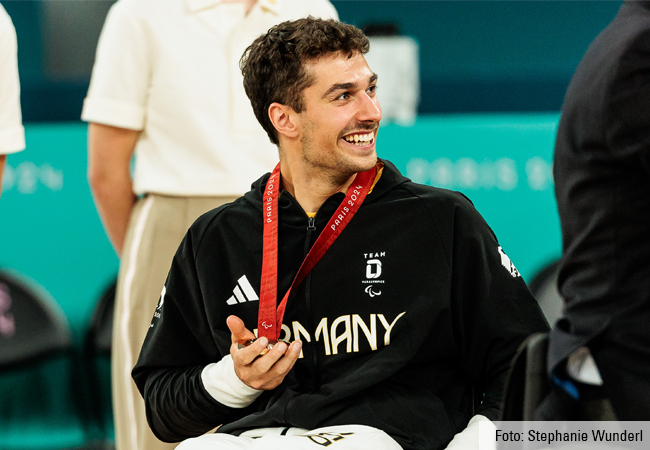
Nico Dreimüller, too, still cannot quite believe that he won a bronze medal in Paris with the wheelchair basketball team. “I dreamt recently that we had to compete again for the medal,” he laughs. But a letter from the Federal Chancellery, signed personally by Olaf Scholz, is definite confirmation of his achievement. Like Juliane Wolf, the lawyer, who studied at Goethe University Frankfurt and is currently completing his legal internship at Frankfurt District Court, raves about the special atmosphere in Paris. “The noise in the hall was incredible and even measured 130 decibels at one point,” says Dreimüller. “The special atmosphere that had been characteristic of the Olympic Games in Paris continued at home in front of the TV. The advantage this time was that there was no time difference for the fans at home, unlike in Rio de Janeiro or Tokyo.”
For Dreimüller, too, the Paralympic Games in Paris were his third and the first one at which he won a medal. The competition for third place and with it the bronze medal was a real thriller: At half-time, the German team was still eight points behind Canada. “Everyone in the changing room thought: Surely that’s not it! But we were able to up our game in the second half, our defense was more aggressive, and our victory was then perfect, if very narrow. I’ve watched the game again: The crazy thing is that we only led for nine minutes throughout the whole game – and those were the last nine minutes. I’m so happy that we were able to turn the game around.” In the semi-final, the British team easily defeated the guys from Germany. Dreimüller, too, sees certain differences in quality here, as with the victorious US team. In view of the great interest in the Paralympics: Does this also increase the pressure, are the Paralympic athletes now also obliged to “deliver”, is reputation decided by a country’s rank in the medal table? “Personally, I don’t really feel it’s like that, nor do I get that impression when I talk to my fellow sportsmen. But it indeed becomes an issue as soon as you talk to sports officials because from their perspective the question arises, of course, as to whether the funding also pays off in the shape of medals. But you also have to understand that as a team we can only ever win one medal, unlike athletes in the individual sports.”
Generally speaking, however, he would like to continue with his sport and take part in the European and World Championships as well as the Paralympics in Los Angeles. But Dreimüller’s next big goal has nothing to do with sport: He is about to sit the Second State Examination in Law and complete his degree. He cannot say yet which direction his career will take, but he would find it interesting to work in an area of law connected to sport. “Sport really does open a lot of doors for you,” says Nico Dreimüller.


